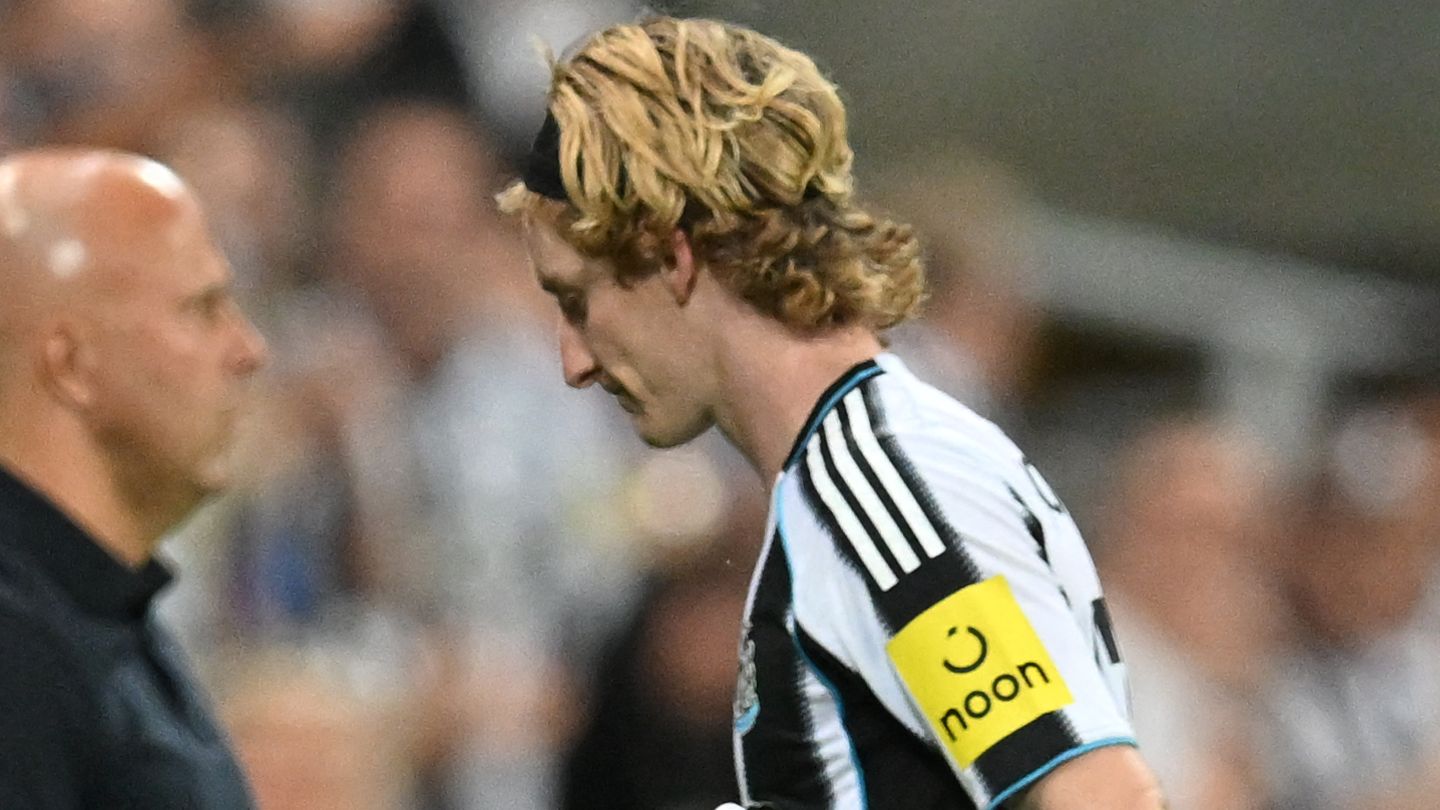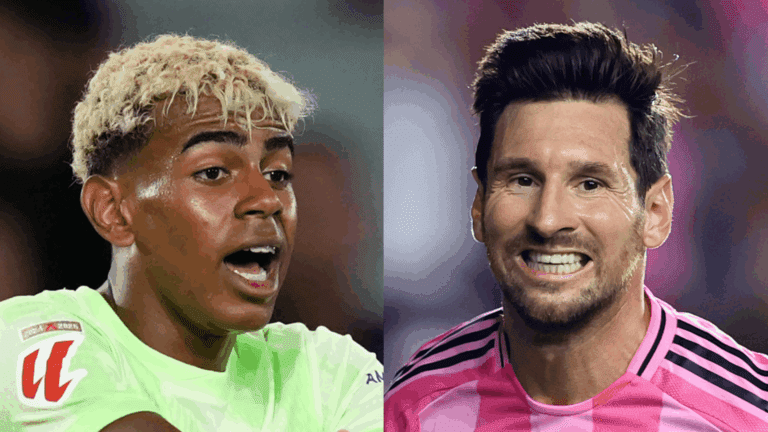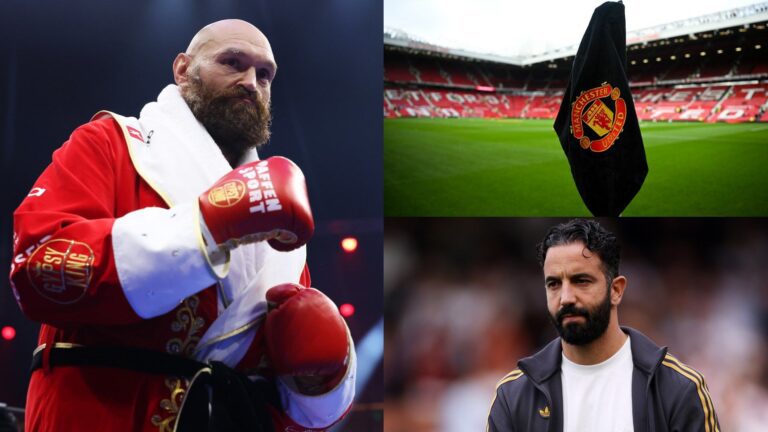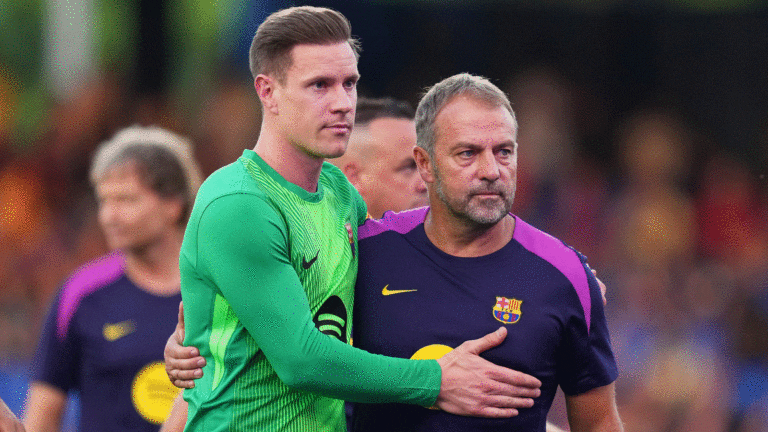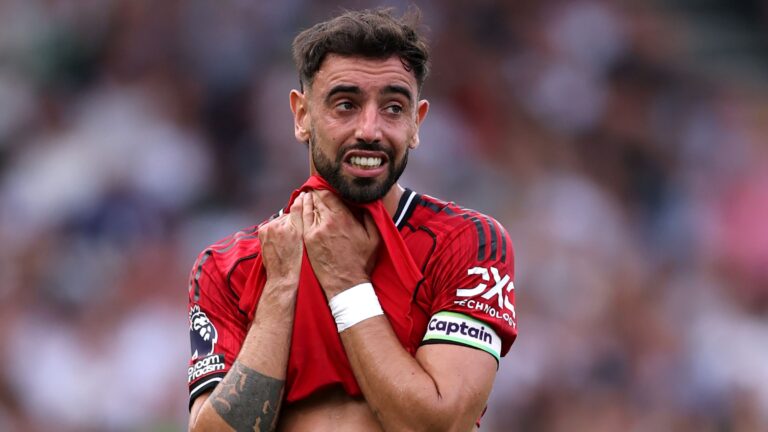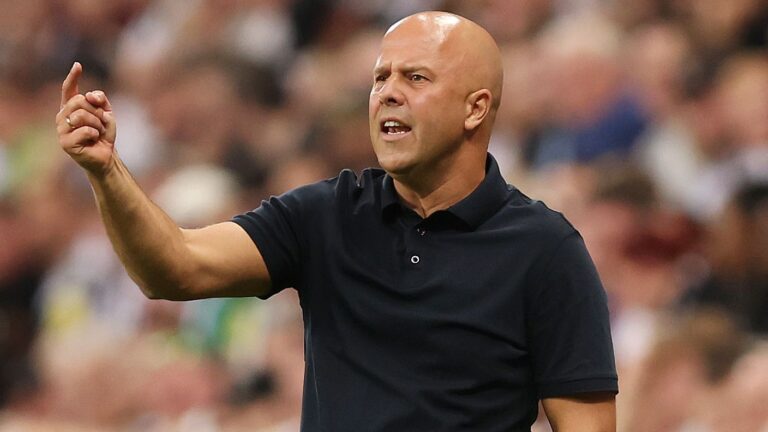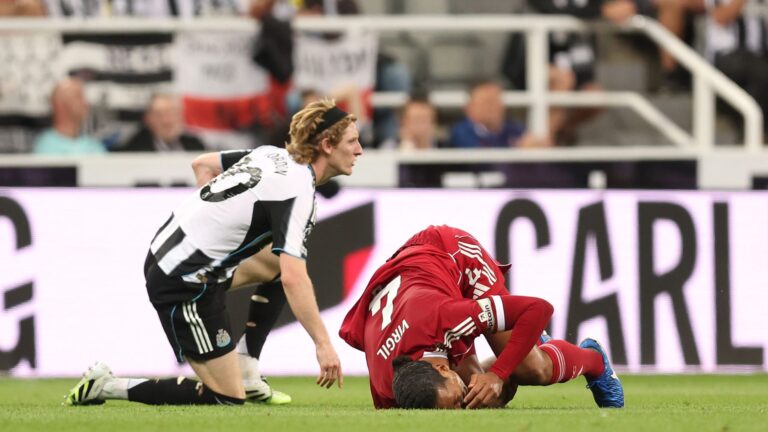Anthony Gordon’s Red Card Controversy: A Fiery Clash in the Premier League
In a heated Premier League encounter, Anthony Gordon found himself at the center of a storm after a reckless challenge on Virgil van Dijk. This incident not only altered the match’s outcome but also ignited widespread debate among fans and pundits, highlighting the fine line between aggressive play and dangerous fouls in modern football.
The Escalating Incident and Its Consequences
During the intense matchup, referee Simon Hooper initially opted for a yellow card against Anthony Gordon following his forceful attempt on Virgil van Dijk. However, after reviewing the play via VAR, the official overturned the call, issuing a straight red card. As a result, Gordon faces a suspension for the next three league games, which could impact his team’s strategy and performance in upcoming fixtures. This moment underscores the growing reliance on video technology to ensure player safety, with recent Premier League data showing a 25% increase in red cards due to VAR interventions since the 2023-2024 season.
- Gordon faces backlash for his aggressive move against Van Dijk
- Newcastle’s key player receives an immediate dismissal
- Liverpool secures a dramatic victory in a high-scoring battle against the Magpies



Fan Backlash and Social Media Storm
Supporters erupted in disapproval online after witnessing Gordon‘s aggressive play, directing their frustration at the England international. One Arsenal enthusiast, posting as DJ on X, argued that the foul was indefensible, stating it was a hazardous move that might have caused serious injury, akin to overzealous defenders in past derbies that led to lengthy sidelinings. Meanwhile, another user, Leo, pointed out the impulsiveness often seen in high-stakes games, suggesting the ejection was justified and comparing it to similar red-card decisions in recent matches, like those involving Tottenham‘s players this season.
Diverse Opinions from the Community
A fan named Haydon highlighted potential inconsistencies in officiating, drawing parallels to an earlier un-reviewed incident involving a different player, which echoes ongoing discussions about VAR’s selective application in the league. Calum Vine expressed disappointment in Gordon‘s actions despite his earlier potential, noting how it handed control to Liverpool and shifted the game’s momentum-much like how a single error can turn the tide in championship races. Adam Brooks described the tackle as wildly irresponsible, criticizing Newcastle‘s physical style that sometimes skirts the rules, and likened it to a defensive blunder in a knockout stage that costs a team dearly.
Match Highlights and Turning Points
The game itself was a rollercoaster, with Liverpool taking an early advantage through Ryan Gravenberch’s precise long-range effort in the 35th minute, which found the net in the bottom-left corner. Capitalizing on their numerical superiority after the red card, the team extended their lead shortly after halftime via Hugo Ekitike’s second league goal of the campaign. Newcastle fought back valiantly, with Bruno Guimaraes heading in a response just before the hour, and William Osula leveling the score on his debut in the 88th minute. Yet, in a stunning twist, Liverpool‘s young star Rio Ngumoha sealed the win in the 100th minute, turning what could have been a draw into a thrilling triumph. This outcome reflects the unpredictable nature of the Premier League, where recent stats show matches with red cards end in away wins 40% of the time.
Looking Ahead for Liverpool
Under manager Arne Slot, Liverpool now prepares for their next challenge, hosting Arsenal in a much-anticipated showdown at Anfield on Sunday. This fixture promises to be another test of resilience, especially after their recent comeback, as the team aims to maintain their position in the title race amidst evolving league dynamics. With updated injury reports indicating Van Dijk‘s quick recovery, fans are optimistic about the team’s prospects in this high-profile encounter.
The Controversial Challenge by Anthony Gordon
In a heated Premier League match, Newcastle United‘s Anthony Gordon found himself at the center of intense scrutiny after a red card challenge on Liverpool’s star defender, Virgil van Dijk. This incident has sparked widespread debate among football fans and experts, highlighting the fine line between aggressive play and dangerous fouls. Gordon’s tackle, which occurred during a high-stakes game, was deemed reckless by referees, leading to his immediate dismissal from the pitch. Such moments in football often raise questions about player safety and the rules governing tackles in the Premier League.
The challenge involved Gordon lunging at Van Dijk with significant force, making contact that appeared unnecessary and potentially injurious. Van Dijk, known for his composure and strength on the field, was left shaken, though he continued playing. Critics argue that Gordon’s actions were not only poor sportsmanship but also a violation of the Premier League’s emphasis on protecting players from harm. Keywords like “Anthony Gordon red card” and “Virgil van Dijk tackle” have trended online as fans dissect the play from various angles.
Details of the Tackle and Referee’s Decision
Referees in the Premier League are quick to penalize dangerous plays, and in this case, the call was straightforward. Gordon’s challenge was reviewed via VAR (Video Assistant Referee), confirming the red card for what was classified as serious foul play. This decision aligns with FIFA’s guidelines on tackles, which prioritize player welfare over the outcome of the game. According to match reports, the tackle could have resulted in a severe injury to Van Dijk, who has a history of dealing with setbacks in his career.
Football enthusiasts have pointed out that such incidents are becoming more common in the fast-paced world of the Premier League, where players like Gordon face immense pressure to win back possession. While Gordon is no stranger to dynamic plays, this particular move has drawn comparisons to other notorious red card challenges in recent seasons, emphasizing the need for better training on safe tackling techniques.
Public Reaction and Criticism
The backlash against Anthony Gordon has been swift and vocal, with criticism pouring in from fans, pundits, and even former players. On social media platforms, hashtags like #AnthonyGordonCriticism and #VanDijkTackle have amplified discussions, turning the incident into a major talking point. Many Liverpool supporters have expressed outrage, accusing Gordon of targeting their key defender deliberately, while neutral observers debate whether the red card was justified.
Pundits on shows like Match of the Day have dissected the footage, noting that Gordon’s challenge lacked control, a critical element in modern football. This event underscores the growing scrutiny on Premier League tackles, where even minor infractions can lead to severe consequences. Critics argue that players like Gordon must adapt to stricter enforcement to avoid damaging their reputations and teams’ performances.
Opinions from Football Experts
Experts such as Gary Neville and Jamie Carragher have weighed in, with Neville calling it a “rash decision” that could cost Gordon in future matches. Carragher, a former Liverpool player, emphasized the potential long-term impact on Van Dijk’s health, drawing parallels to past injuries that sidelined top defenders. This expert analysis adds depth to the conversation, reminding players and coaches of the importance of disciplined play in high-level competitions.
The criticism extends beyond social media, with sports analysts using this incident to discuss broader themes in football, such as the evolution of tackling rules. As the Premier League continues to prioritize safety, incidents like Gordon’s red card serve as cautionary tales for aspiring players.
Implications for Anthony Gordon’s Career
For Anthony Gordon, this red card could have lasting implications on his career trajectory. As a rising star at Newcastle United, such a moment of indiscretion might affect his selection for upcoming games and even impact his chances with the England national team. Football managers often view red cards as indicators of poor judgment, which can hinder a player’s development and market value.
In the aftermath, Gordon may face additional sanctions from the Football Association, including fines or suspensions. This incident highlights how a single poor decision can overshadow an otherwise promising season, making it essential for players to focus on controlled aggression during Premier League matches.
Case Studies of Similar Incidents
To provide context, let’s look at past case studies. For instance, in 2021, Manchester United‘s Paul Pogba received a red card for a high tackle on an opponent, leading to widespread criticism and a multi-game ban. Similarly, Arsenal’s Granit Xhaka has faced backlash for aggressive challenges, which affected his team’s dynamics. These examples illustrate how red cards for tackles on stars like Virgil van Dijk can shift game outcomes and player perceptions.
Analyzing these cases reveals patterns: players who commit such fouls often experience setbacks in form and team standing. Gordon’s situation mirrors these, offering a real-world lesson on the consequences of impulsive actions in professional football.
Practical Tips for Safe Tackling in Football
While criticism is rife, this incident presents an opportunity to discuss safer playing techniques. For young athletes and professionals alike, adopting better habits can prevent red cards and injuries.
- Focus on Timing: Always aim to tackle when the ball is accessible, reducing the risk of contact with the opponent. Proper timing can make the difference between a clean challenge and a foul.
- Use Proper Body Positioning: Keep your body low and balanced to avoid lunging, which often leads to red card offenses. Training drills that emphasize stability can help players like Gordon improve.
- Study Opponents: Understanding a player’s style, such as Van Dijk’s strength, allows for smarter defensive plays. Scouts and coaches should incorporate video analysis into training sessions.
- Prioritize Fair Play: Remember that football is about skill and strategy, not recklessness. Engaging in sportsmanship builds respect and longevity in the game.
- Seek Coaching Feedback: Regular reviews with coaches can identify potential issues in tackling technique, helping players refine their approach before matches.
By implementing these tips, players can minimize the chances of facing similar criticism, ensuring they contribute positively to their teams.
Benefits of Adopting Safer Techniques
Incorporating safe tackling methods offers numerous benefits, from reduced injury risks to enhanced team performance. For instance, players who master controlled challenges are less likely to receive cards, allowing them to stay on the field longer and influence game outcomes. Teams that emphasize these practices often see improved morale and fewer disciplinary issues, making them more competitive in the Premier League.
In Gordon’s case, adopting these strategies could turn this criticism into a pivotal learning experience, potentially elevating his career in the long run.


